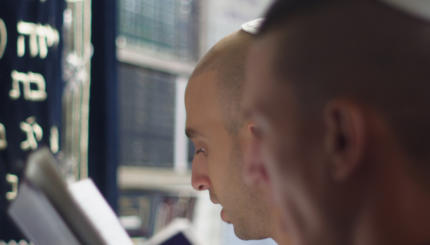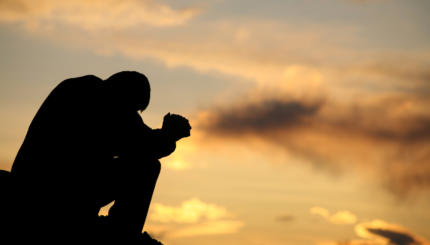During my first year as a rabbinical student at the Jewish Theological Seminary in 1989, a teacher challenged us to compose new prayers. Concerned then, as now, with environmental disaster, I composed an Al Chet based on the model of the traditional penitential prayers recited on Yom Kippur, confessing that “we have sinned, we have wasted, we have caused vast damage.” Many years (and edits) later, this prayer was published by the Conservative movement in Mahzor Lev Shalem (2010), where it appears as a supplement to the Yom Kippur morning service.
Several years later, I was invited to compose an environmental prayer specifically for Shabbat. It was an honor, but I struggled. I was aiming for a tone like that of the prayer for the government, which is also recited on Shabbat morning — idealistic, but with an undercurrent of concern for the consequences of injustice.
Around that time, I was engaged in a large project studying the laws of Shabbat in relation to electronic devices. The resulting paper, “The Use of Electrical and Electronic Devices on Shabbat,” concluded that the power of Shabbat emerges as much from restraint as from action. We “build” Shabbat by “not building” the world. Paradoxically, by refraining from creative labor on Shabbat, we make room for deeper and more durable forms of creativity: the creation of song, of Torah, of family, and of community.
Refraining from creative labor on Shabbat also makes room for awareness of the natural realm. Humans love to tinker with things, but on Shabbat we are commanded to lay down our tools and notice the wondrous resources that surround us.

Help us keep Jewish knowledge accessible to millions of people around the world.
Your donation to My Jewish Learning fuels endless journeys of Jewish discovery. With your help, My Jewish Learning can continue to provide nonstop opportunities for learning, connection and growth.
There is a famous Midrash (Vayikra Rabba, Behar 34) about a pious farmer who was out walking in a vineyard on Shabbat and noticed a fence that needed repair. His first thought was to fix the fence immediately, but since one is not supposed to even plan work on Shabbat, let alone perform it, he pledged never to repair that fence. God rewarded the farmer by causing a tree to rise in that corner of the vineyard, filling the gap in the fence and giving fruit for many years.
This story is not a practical guide, but more of a morality tale. The point is that if we can refrain not only from working but also from thinking about working on Shabbat, then new blessings can enter our lives.
A similar point can be made about environmental awareness on Shabbat. During the week, we must focus on changing the ways that we travel, eat, and consume to lessen our environmental impact. But on Shabbat, the best thing we can do is to go out for a walk and appreciate nature—to expand our consciousness of the beautiful world of rocks and rivers, plants and animals, wind and rain, snow and sun. Instead of thinking constantly about what we might do to improve the environment, we enter the natural realm only to receive its gifts. This sense of wonder deepens our connection to the Creator, and to sense of our gratitude, and prepares us to become more reliable partners in maintaining the natural systems that sustain all life.
This intention guided me as I composed the final version of “A Prayer for the Renewal of Creation,” which appears in the Conservative movement’s Siddur Lev Shalem. The premise is that resting on Shabbat curbs our instinct to constantly manipulate the environment, and thereby allows us the room to take in the wonders of the natural world. Instead of assuming that humans can fix every problem, it humbly asks God to bless creation again. As we read in Genesis, “God blessed the seventh day and sanctified it.”
The prayer also pledges partnership and responsibility in preserving the ecosystem for generations to come. It is my hope that, after Shabbat, this awareness can be translated into the difficult modifications demanded of us all to reduce and even reverse the damage that we’ve done to the world so that God will bless the labor of our hands.
The full text of A Prayer for the Renewal of Creation reads:
רִבוֹנוֹ שֶל עוֹלָם
Ree-bow-no shel oh-lahm
Master of the universe,
אֲשֶר בְיָדך נֶפֶשׁ כָל חָי
ahh-share biyad’chah neh-fesh kole chai
in whose hand is the breath of all life
,וְרוּחַ כָּל בְּשַׂר אִישׁ
vi-roo-ach kole bah-sahr eesh
and soul of every person,
,הַנְחִילֵנוּ שַׁבָּת מְנוּחָה
hahn’cheelaynoo shahbaht minoochah
grant us the gift of Shabbat,
.יוֹם לִשְׁבּוֹת בּוֹ מִכָּל מְלָאכָה
yom lish’boat bow mee-kole mih-lah-chah
a day of rest from all our labors.
,בּכָל תְחוּשָׁה
bih-kole tihchooshah
With all of our senses
.נָכִּיר וְנֵדַע אֶת הוֹד יְצִירָתְךָ
nah-keer vinay-dah et hode y’tzeerat’chah
may we perceive the glory of Your works.
שַׂבְּעֵנוּ מִטוּבֶךָ
sahb-ay-noo meetoovechah
Fill us with Your goodness,
.שֶׁנִהְיֶה עֵדים לְגֹדֶל מַעַשֶׂיךָ
she-nee’yeh ay-deem lih-gohdell mah-ahh-seh-chah
that we may attest to Your great deeds.
חַזְקֵנוּ לִהְיוֹת עִמְךָ
chahzkaynoo lee-yote eem’chah
Strengthen us to become Your
,שׁוּתָפִים נֶאֶמָנִים
shootahfeem neh-ehh-mah-neem
faithful partners,
לִשְׁמוֹר עַל עוֹלָמְךָ
lishmoor ahl olam’chah
preserving the world
.בַּעַבוּר הַדוֹרוֹת הַבָּאִים
bah-ah-voor hahdorote hah-bah-eem
for the sake of future generations.
יְהִי רָצוֹן מִלְפָנֶיךָ
yihee rahtzone meel’fah-neh-chah
May it be Your will
,יהוה אֶלֹהֵינוּ וֵאלֹהֵי אַבוֹתֵינוּ וְאִמוֹתֵינוּ
adonai eh-low-hay-noo veh’low-hay avotaynoo v’eemotaynoo
Adonai our God and God of our ancestors,
שֶׁתְבָרֵך אֶת עוֹלָמְךָ
sheh-t’varech et olam’chah
to renew Your blessing for the world
.בּיָמֵינוּ כִּימֵי קֶדֶם
bih-yah-may-noo key-may kedem.
in our day, as You have done from the beginning of time.



